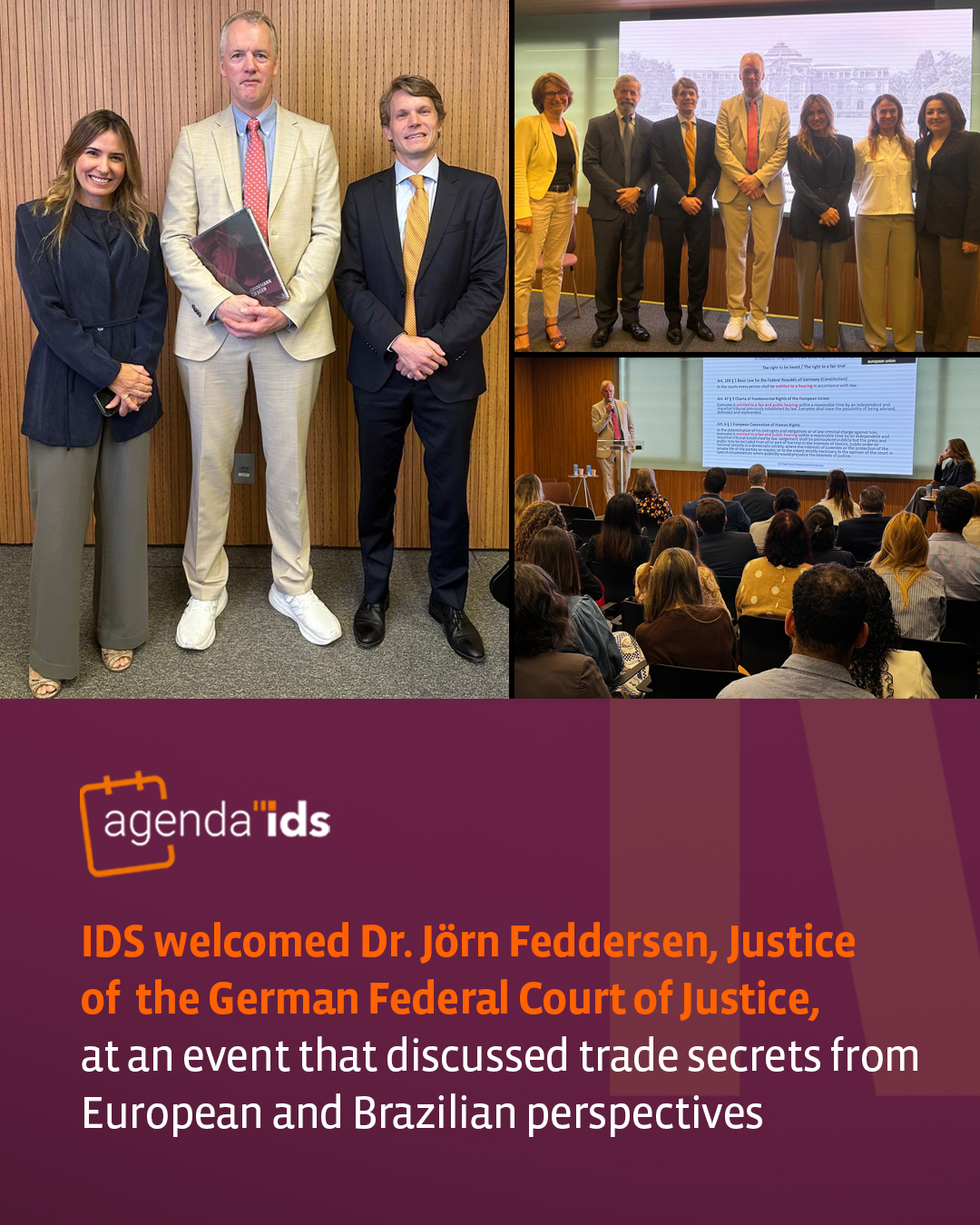02 de setembro de 2025
Share
IDS welcomed Dr. Jörn Feddersen, Justice of the German Federal Court of Justice, at an event that discussed trade secrets from European and Brazilian perspectives.
This past Monday, the Dannemann Siemsen Institute (IDS) held another edition of Agenda IDS, this time dedicated to discussing trade secrets and unfair competition considering the experiences of the European Union and Brazil. The event featured a lecture by Dr. Jörn Feddersen, Justice of the German Federal Court of Justice (Bundesgerichtshof), who addressed the EU Trade Secrets Directive (2016/943) and its implementation under German law. In addition, Cândida Ribeiro Caffé, partner at Dannemann Siemsen and IDS Board Member, contributed as a discussant by presenting the Brazilian perspective, while Felipe Dannemann Lundgren, partner at Dannemann Siemsen and also an IDS Board Member, served as moderator and fostered debate by raising practical questions from the audience.
In his remarks, Justice Feddersen emphasized the legal definition of a trade secret set forth in the Directive, which requires three cumulative elements: confidentiality, commercial value deriving from secrecy, and the adoption of reasonable steps to preserve such secrecy. He further illustrated typical examples of trade secrets, including client lists, pricing calculations, and software.
The speaker also examined the distinction between lawful and unlawful acquisition of information. Lawful forms include independent discovery, observation of publicly available products, and other practices consistent with honest commercial conduct. Unlawful forms, on the other hand, encompass unauthorized access to documents or files, as well as breaches of confidentiality agreements or contractual duties.
Another key issue addressed concerned the judicial remedies and measures available to trade secret holders, such as injunctions to cease unauthorized use or disclosure, seizure of infringing goods, and damages, always subject to the principle of proportionality. Justice Feddersen stressed that courts must balance the legitimate interests of the parties, the economic impact of the infringement, the public interest, and even the protection of fundamental rights.
He further drew attention to the procedural challenges in trade secret litigation: in many cases, proving the infringement requires disclosure of the secret in court, which risks extinguishing its protection. To mitigate this issue, the Directive provides for procedural safeguards, such as confidentiality orders, restricted access to documents, and hearings limited to trusted participants.
In her intervention, Cândida Ribeiro Caffé shared the experience of a case handled by the firm involving trade secrets, illustrating how such disputes are addressed in practice under Brazilian law. Subsequently, during the Q&A session, the audience raised questions on the possibility of bringing legal action against a party that patents a trade secret, on the characterization of unfair competition in cases of data leakage, and on the use of blockchain technology as a tool for protection.
The recording of the event will soon be made available on the IDS website.
Note: For quick release, this English version is provided by automated translation without human review.
